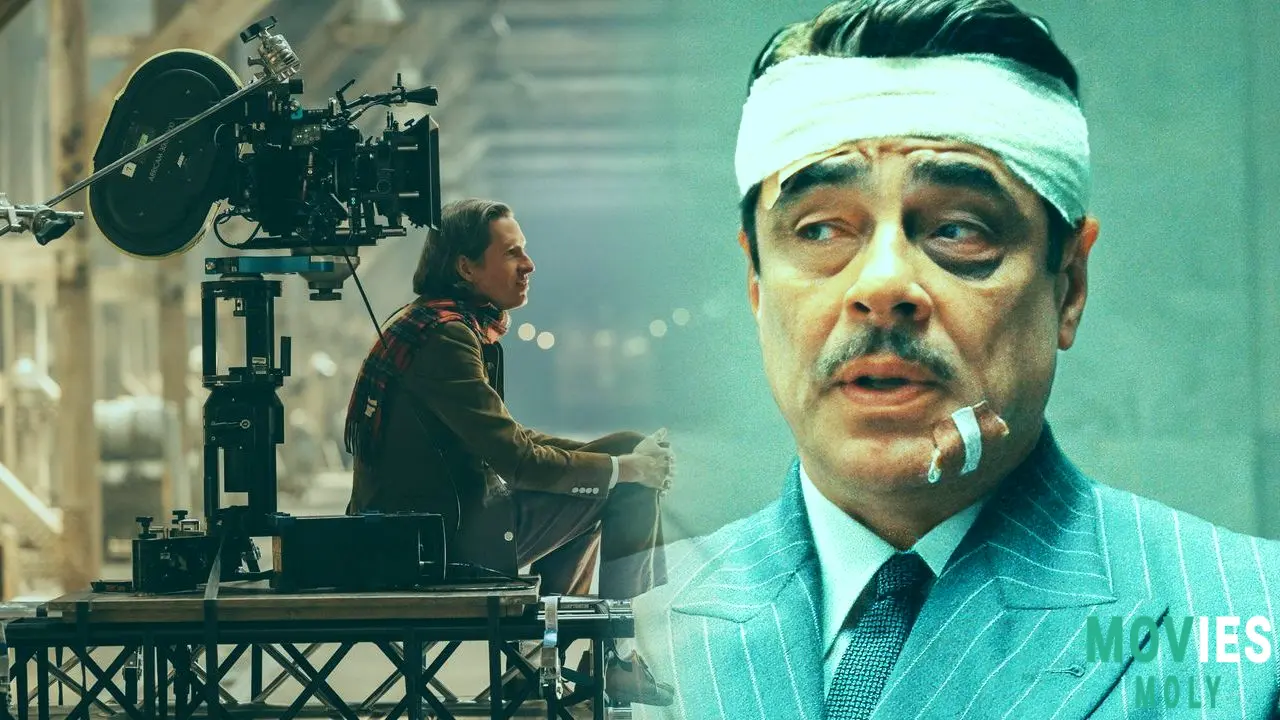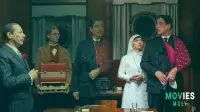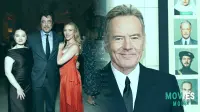Talking with director Wes Anderson feels a lot like watching one of his movies. It moves quickly. There are interesting side stories. The details are well thought out. You often only notice them later, maybe after leaving the theater or, in my case, hanging up the phone. This particular conversation happened because of the Cannes Film Festival. Anderson has shown three films there before: Moonrise Kingdom in 2012, The French Dispatch in 2021, and Asteroid City in 2023. He will be back this year with his newest film The Phoenician Scheme. Anderson loves movies and makes them, so he feels like a strong part of this festival where cinema is highly respected.
The Phoenician Scheme is set to arrive on May 30. It stars Benicio del Toro as Zsa-Zsa Korda, a rich European businessman. He built his worldwide business using questionable methods. After just barely surviving another try on his life, he names an heir to his fortune. This is his estranged and only daughter, Liesl. She is a nun about to take her vows and Mia Threapleton plays her. The movie has many returning actors like Jeffrey Wright, Scarlett Johansson, Benedict Cumberbatch, Bryan Cranston, and Tom Hanks. It also has new faces joining his group of actors, including Michael Cera and Riz Ahmed.
Wes Anderson Shares His Cannes Experiences And How He Manages Red Carpet NervesThe Director Reveals Why He Prefers A Party Bus Over Separate Cars For His Film Premieres
Anderson, 56, talked about how it feels to sit through his own movie premiere. It makes him anxious. He also talked about his choice to arrive by bus. He said "It’s as discreet as a bus with a bunch of movie stars on it can be.” He remembered seeing Movies with a little card at the start in high school. He specifically mentioned Wings of Desire and Sex, Lies and Videotape.
He was not given any advice before his first Cannes premiere. He said you do not really have to do anything. When you show a movie in New York or at Telluride, you introduce it and do a Q&A session. In Cannes you just walk in and sit. They handle everything from there. He feels showing a movie at a festival means you are on display which is a bit scary. Cannes makes it a big event with a giant staircase. When you go up the stairs with your cast and team you see excited people. It is also a French national tradition. This festival is considered the most important in the world and it is theirs. He said the second screening at a film festival is for younger people who cannot get into the big show. That one is always more fun.
The most fun part for him is walking in. Once the movie starts playing, he feels like he is auditioning for everyone in the room. That is nerve-racking for him. He starts thinking "Hmm, we didn’t get that bit right.” It is fun at the end he says but not while he watches the movie. He gets very tense. But the walk in is great. He also mentioned they have a routine. They have a bus and everyone enters the red carpet together from the bus. At first Thierry Frémaux the Cannes Film Festival director wondered about it. But Thierry has come to like their method. Anderson said they stay outside of Cannes. They arrive in this unusual way. They arrive very happy to be there.
Anderson explained why they started arriving by bus. He said for The French Dispatch premiere he decided to do it that way. He admits the first reaction was not full of excitement. Not everyone wants to ride a bus. But they did it and liked it. What he looks for is whatever will make it the most fun. Arriving together like that is a fun way to come to the event. The other choice is having 17 people in 17 cars. They would get stuck in traffic for 45 minutes to go three blocks and then get out one by one. He feels the bus is discreet. He does not get to see other films when he is at Cannes. He said if you are showing a movie there you are always in the middle of a busy time. But this year he plans to see one movie. It is a restored Satyajit Ray film called Days and Nights in the Forest. He is on the board of the Film Foundation which restored it. He suggested the foundation restore this particular movie. It is about a group of men in their twenties or thirties who go on a lost weekend outside Calcutta. He suggested it because it is one of his favorite Satyajit Ray movies. Also nobody could see it. He first saw it from a homemade version from a Hindi-language DVD shop.
The Unexpected Casting Of Benicio del Toro In A Leading Role For Wes Anderson's Latest Film
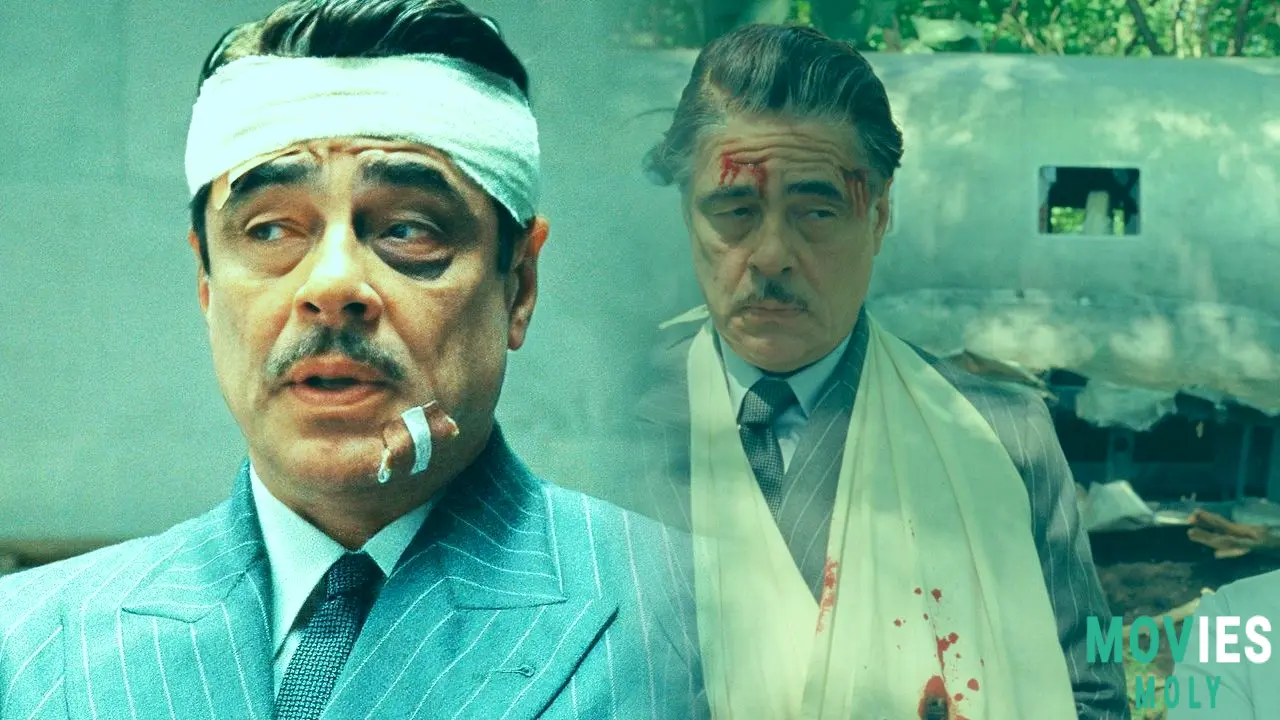
How A Conversation At Cannes Led To An Unusual Yet Perfect Casting Decision
The story for The Phoenician Scheme came from an idea Anderson brought up to Benicio del Toro at Cannes when they showed The French Dispatch. They talked about it briefly. Anderson did not really know what it was at the time. But he had an image of Benicio playing a rich European businessman like someone in an Antonioni movie. He could see del Toro in the role with his sunglasses. One of the main inspirations for the character was his wife’s father Fouad Malouf. He was Lebanese and a larger-than-life person whom Anderson loved. His father-in-law was wise and intelligent but a little scary. It was always good to walk into a restaurant with him because everything was handled right away. Many parts of this character are based on him.
Anderson felt Benicio del Toro was the right choice for this role because the film would not have happened without him. He had wanted to work with Benicio for years. Benicio and Jeffrey Wright were on a list of actors Anderson wanted to work with. In The French Dispatch, both Benicio’s part and Jeffrey’s part were written specifically for them. For The Phoenician Scheme, casting Benicio was not a choice. He was the only one Anderson thought of. Anderson said if Anthony Quinn had been available he might have thought of him but he died a long time ago. Orson Welles could have played this part. Toshiro Mifune could have done it too but he did not speak English.
Benicio del Toro said Anderson told him about the project at Cannes. He had 20 pages written. Anderson kept sending him more pages. Del Toro said "Little by little, I understood that it was the whole thing.” This means he did not realize he was the main star at first. Anderson wanted to build a movie around del Toro’s magnetic and mesmerizing presence. Del Toro thought it was a great gift. He knows it demands time and focus from him. He has to sacrifice some things. But as an actor he prays for a role like Zsa-Zsa. He said you do not get them often.
Wes Anderson's Unique Approach To Filmmaking And How He Sees His Own Work
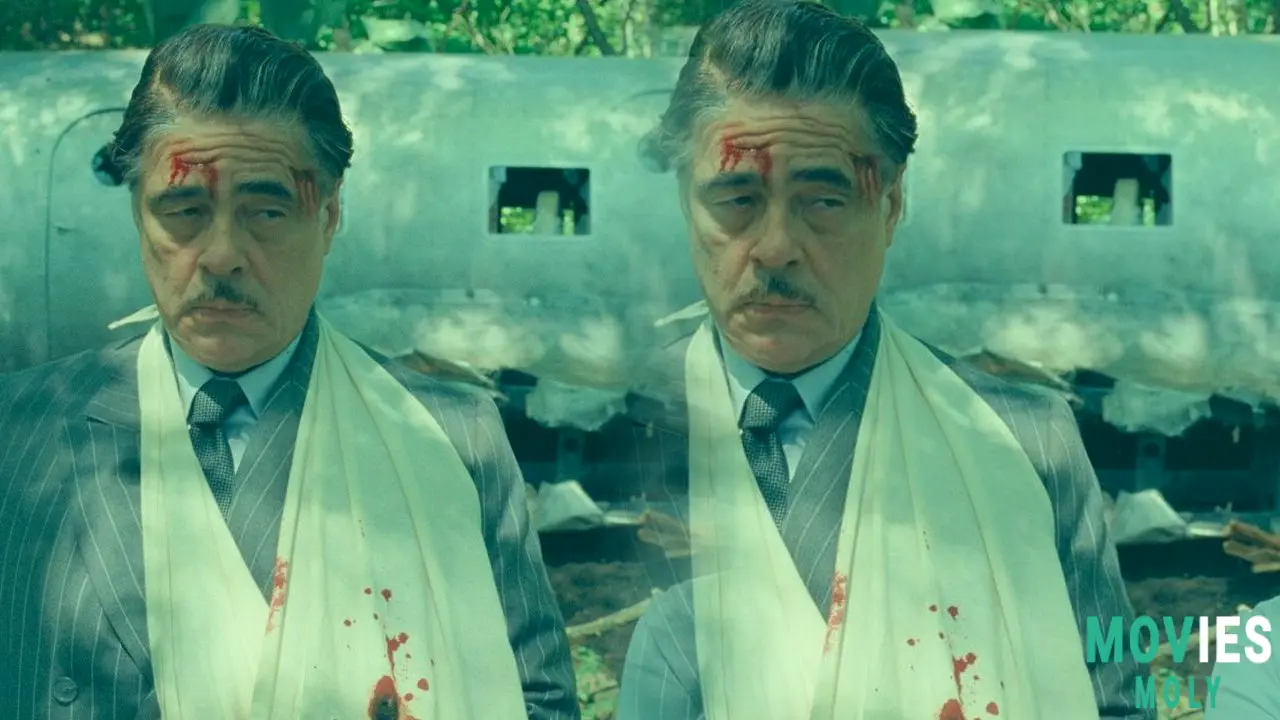
The Director Reflects On His Distinct Style And His Desire For Viewers To See His Movies More Than Once
Benicio and Mia’s father-daughter connection is a central part of the movie. Anderson said two personal things might relate to it but he is not sure. One is that he has a daughter who is 9. He does not know if that relates directly. Also, he knows his father-in-law’s relationship with his wife Juman Malouf. That family flow was probably in there. Both have very little direct overlap with the characters. Anderson often feels when he is writing a movie that it is a hidden already existing story. It feels more like he is trying to uncover it or dig it up. He says the movie tells him what it wants to be. He thinks this is a way of describing it because he is making it up but it feels like finding something that already exists. It is an odd feeling so it is not always possible to say exactly why he did something. Part of the answer is because that is what the story seemed to want.
There is a career show of Anderson’s work happening at the Cinémathèque Française. He talked about diving into his past. He said the first film he made Bottle Rocket had everything go to the studio’s storage. He visited it to find some items from the set. He saw that things were not stored well or were sold. Some things he had made himself. He felt offended by this. So he started keeping things himself. At first he would just take them. Later he put it in his contracts that he would look after the costumes and be responsible for them. For The Life Aquatic, someone from the studio came to Italy to stop him. He still took most of the items. But some things were taken back and lost or sold. For the exhibition he had to find some items that were given away sold or traded. A group of other people handled the exhibition itself. He just provided the items.
Anderson once said when talking about filmmakers from the 70s that "People are sort of obligated to compete with themselves and everything they do is compared to their earlier work.” He feels this about his own filmmaking. He said what connects his movies is his style and visual handwriting. He knows people focus on this surface. He understands that it is clearly his work. But for him each movie is a different story with different characters. It is a whole new project. For him what the movie is is the new thing. He feels people are often surprised that his movies are clearly his. But he is himself. He just wants people to look at the movie for what it is not for what it is like or how it is done. He also suggested seeing his movies twice. He feels his movies can be dense but they are not very long. He tries to make efficient movies. He says his way of making movies is about clarity and communicating quickly. This makes his movies similar to each other. Sometimes he feels the best way to enjoy one of his movies is to have seen it already and know what to expect. He suggests if you do not like it the first time try to see it again.

